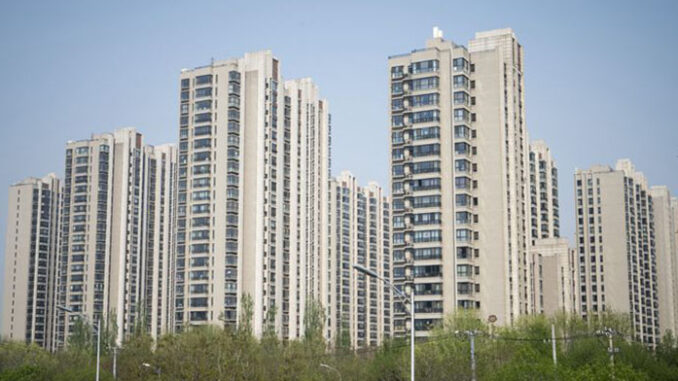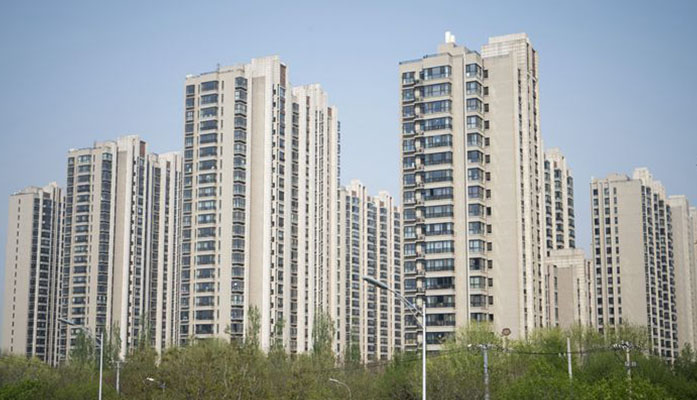
Though this libertarian conservative would never endorse China’s communist political system, major Chinese cities look much healthier than their American counterparts. No matter how much credit the Chinese government deserves, the fact remains that, in many respects, China’s metropolises are creating far more pleasant living conditions than ours.
I have been blessed to tour China four times since 2008, extensively exploring a dozen major and minor cities. In October, I visited Guangzhou, Nanjing, and Beijing again, each of which is larger than New York City. Yet, despite walking and taking taxis all over these enormous urban centers, I never saw a single homeless person. What a contrast to the large number of homeless in every major U.S. city today, and often even in medium-sized ones.
Aside from a few cigarette butts, I saw no litter in these three Chinese cities either – none. I cannot say that about even small American towns. Nor did I see a single speck of Chinese graffiti. Indeed, Beijing’s subway was spotless. Is there any big U.S. city not scarred by graffiti?
Never did I fear crime, walking anywhere late into the night in some of the most densely-populated places on the planet, as did so many single women and mothers pushing strollers. Can any of us say this about even medium-sized U.S. cities?
I did not notice a large police presence in these huge cities either. Indeed, I see far more police in my small hometown of Gainesville, Georgia, and, unlike here, few Chinese police even have guns.
In such safe environments, perhaps I should not have been surprised by how many young Chinese families were about, and it was especially heartening to see so many fathers engaged with their little ones. Alas, I do not see remotely as many young, intact families in U.S cities.
Environmentally, the Chinese have come a very long way. In 2008, many Beijingers wore masks due to pollution. But few do so today as there is an enormous number of electric cars, as well as electric buses. There are not nearly as many gas stations as here, but there are lots of bike lanes, and free public bikes abound. Chinese stores use paper bags, and this year I finally saw a blue sky over Beijing.
Ever-faster, electric bullet trains now link all of China’s major cities. In 2008 the train from Shanghai to Suzhou went 150 mph. This year’s Nanjing-to-Beijing train went 217 mph. China has 29,000 miles of high-speed rail. We have 50.
Whereas American institutions mandate “diversity” and constantly extol new ways to separate us along lines of race, sex, sexual orientation, and ever more divisive categories, Chinese government posters push “unity,” “harmony,” “kindness,” “cleanliness,” “honesty,” “hard work,” “patriotism,” “sacrifice,” and “nurturing the young.” Whose propaganda is healthier?
Sure, the Chinese “news” media only push one political agenda, but how is that different from CBS, NBC, ABC, PBS, Fox News, CNN, MSNBC, NPR, talk radio, or even today’s “news” sections of major U.S. newspapers and magazines? They all only report what furthers their particular political narrative, though Chinese reporters are way more polite.
Like here, Chinese have a healthy skepticism about the propaganda they receive. For instance, despite their government’s unrelenting bad press about America, the Chinese people love Americans. Strangers on the street ask where I am from, raise their thumb when told “America,” and ask to be photographed with me. One Chinese called the U.S. “fantastic.”
In fact, countless encounters with folks from the Great Wall to Hong Kong have revealed the Chinese to be a remarkably warm and decent people who mean us absolutely no harm.
Yet U.S. elites regularly berate and demand we punish “China.” But is blaming (and harming) the Chinese people for the Beijing regime’s sins any more fair than castigating ourselves for our own government’s policies? What do most Americans think of every other U.S. president?
Could it be that our ruling class covets a foreign bogeyman to blame for its own failures, to get votes without having to improve our lives, to slap tariffs on Chinese goods to help powerful U.S. industries, and to jack up the military budget even more? Next time you hear a “defense” industry flack warn that China now has two whole aircraft carriers, remind yourself that we have 11.
Sure, the Chinese are not nearly as affluent as we are (though they are doing better than ever), they have way too many huge ugly apartment complexes, they still have too much smog, they are not politically free, and they lack solid private property rights.
But you do not have to be remotely communist to recognize that China’s big cities have much to recommend. Indeed, while Americans flee from ours, theirs keep growing. Instead of promoting conflict, how about we learn what they have done right, as they have learned so well from our economic and technological successes?
Dr. Douglas Young is a political science professor emeritus who taught government and history for over 33 years and whose essays, poems, and short stories have appeared in a variety of publications in America, Canada, and Europe. His first novel, Deep in the Forest, was published in 2021 and the second, Due South, came out in 2022. His first book of essays, This Little Opinion Plus $1.50 Will Buy You a Coke: A Collection of Essays, appeared in 2024.

